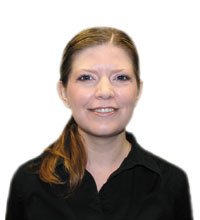I suggested Christmas gift ideas in my last column I hoped would
serve as
”
conversation catalysts.
”
With 2008 on the horizon, I want to recommend a New Year’s
resolution for you to consider: Documenting your family’s
history.
I suggested Christmas gift ideas in my last column I hoped would serve as “conversation catalysts.” With 2008 on the horizon, I want to recommend a New Year’s resolution for you to consider: Documenting your family’s history.
This sounds overwhelming, doesn’t it? If you divide this project into portions and set goals, it should be easier to accomplish. It will be an educational experience for you and for future generations. Before I tell you how to tackle this task, I’d like to share my inspiration for this week’s column.
I was blessed with my great grandmother’s love until I was 9 years old. She lived in San Martin and I spent a lot of time with her. We watched soap operas, made cinnamon rolls and did chores while she sang “Swing Low Sweet Chariot.” In 1983, she agreed to do an “interview” when my uncle purchased a video camera. She passed away in 1985 but luckily, my uncle had given each of us a copy of that video tape.
In 2005, Leah Halper, a professor from Gavilan College, gave her students an assignment: interview someone over the age of 55. I had never watched that tape of my great grandmother before – it had sat in a drawer for nearly 20 years because I knew it would make me sad. My apprehension began to lift and Leah said I could use the tape for my project.
I am so thankful that my uncle took the time to make that tape. I have learned so much about my great grandma, the historical events that shaped her life and the personal trials that paved her way from Oklahoma to California during the Depression. I had only known her when I was a child, and now, as an adult, I can relate to her on an entirely different level.
Here are some suggestions I gathered from Uncle Bill’s interview with my great grandma, Leah Halper’s history assignment and ancestry.com:
n Write down what you know. Try to recall names, dates and places of births, marriages and deaths. Collaborate with family members. Ancestry.com suggests keeping a research log: when you contact family, make a record indicating who gave you that information.
n Browse family keepsakes such as bibles, photographs, commemoration memorabilia and letters. This initial research will help you to create questions for your interview.
n Use books and Web sites to learn more about locations and time periods surrounding the items you uncover. Ancestry.com suggests using the National Archives and Record Administration (www.nara.gov) or the Census Bureau (www.census.gov). They also recommend the Family History Library for research.
n Utilize public information beginning with state and county records pertaining to your relatives, such as immigration, school, tax and property records. Ancestry.com notes that between 1917 and 1918, more than 24 million men registered for the draft and that draft cards will provide you with information related to your search.
After you have done research, informed your relatives of the project, obtained permission to record the interview and set a date, make sure you are prepared. Make sure your recording equipment is functioning, have questions ready, photographs and items you found (postcards, serving dishes, jewelry or ticket stubs) available. You might want to recruit someone to take notes for you.
Suggested questions include: What is your full name and how did you get it? Where were you: born, live as a child? Parents: what were they like, their names, how did they meet? Did you have: chores, a favorite subject in school, family vacations, holiday celebrations, relatives who would visit?
Try not to interrupt your interviewee; letting them elaborate may uncover information that can assist in guiding the project. However, try and stick to your questions. If you have an interviewee who just gives yes or no answers, refer to your notes and offer historical prompts.
When my uncle first began his interview with my great grandmother, it was obvious she was uncomfortable with the camera but eventually she forgot the tape was rolling and began to open up. She even went to her room and grabbed a box of cards, letters and keepsakes to share with him.
Keep in mind that when you are doing your research you may uncover some things you didn’t previously know … use discretion. We all have secrets we wish to keep. Have fun but be respectful.












